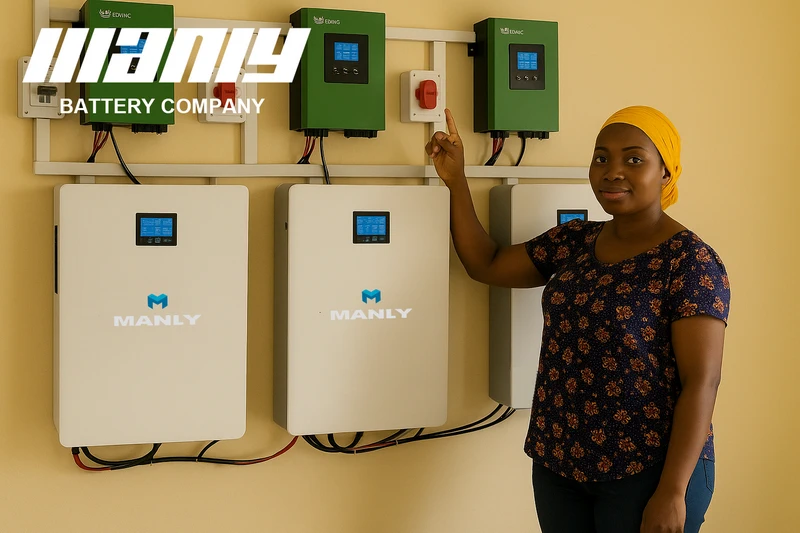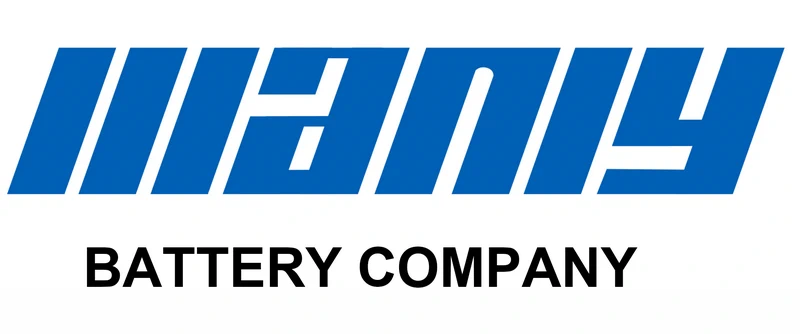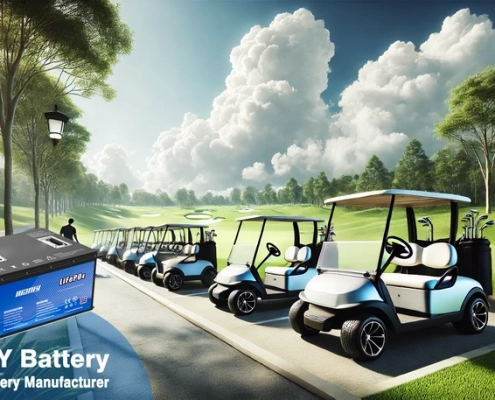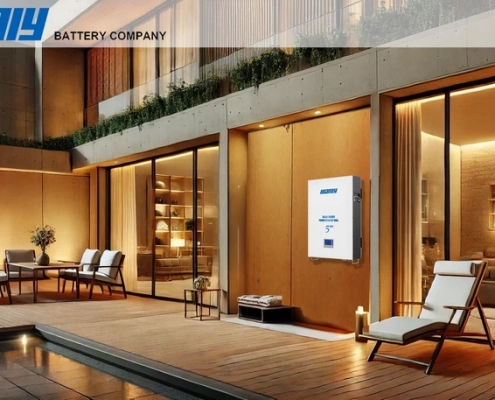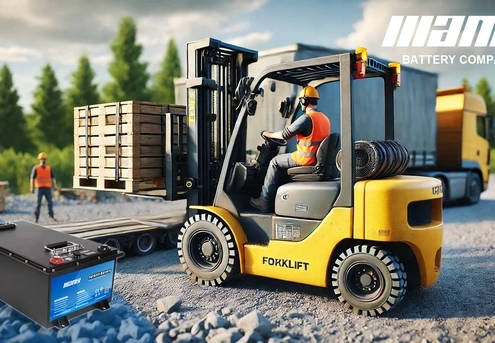Top 11 Best Solar Battery In Nigeria
Table of Contents
- Top 11 Best Solar Battery In Nigeria
- BYD (BYD Company Limited)
- MANLY Battery (Shenzhen MANLY Battery Co., Ltd)
- Pylontech (Pylon Technologies Co., Ltd.)
- Amaron Quanta (Amara Raja Energy & Mobility Limited)
- Luminous (Luminous Power Technologies Pvt. Ltd)
- Eastman (Eastman Auto & Power Limited)
- Multipower
- Felicity (Guangzhou Felicity Solar Technology Co., Ltd.)
- RITAR (Ritar International Group Limited)
- Gennex SVC
- SRNE
- Conclusion
- Learn More About Battery
In today’s Nigeria, where NEPA can be off without warning and diesel costs keep rising, having a reliable solar battery is no longer a luxury — it’s survival. Whether you run a barbershop in Port Harcourt, live off-grid in Kano, or manage a clinic in Enugu, a dependable solar battery system helps you stay productive when the lights go out. But with so many solar battery companies in the market, how do you know which one truly delivers value?
This guide brings you the 11 best solar batteries in Nigeria, with a deep look into their specs, prices, performance, and real-life use cases. We’ll cover top brands like MANLY, BYD, Pylontech, Gennex, Felicity, and more — breaking down not just what they promise, but how they actually perform under Nigerian conditions. So whether you’re searching by solar battery price in Nigeria, lifespan, safety, or inverter compatibility, this list gives you the honest insight you need before making a purchase.
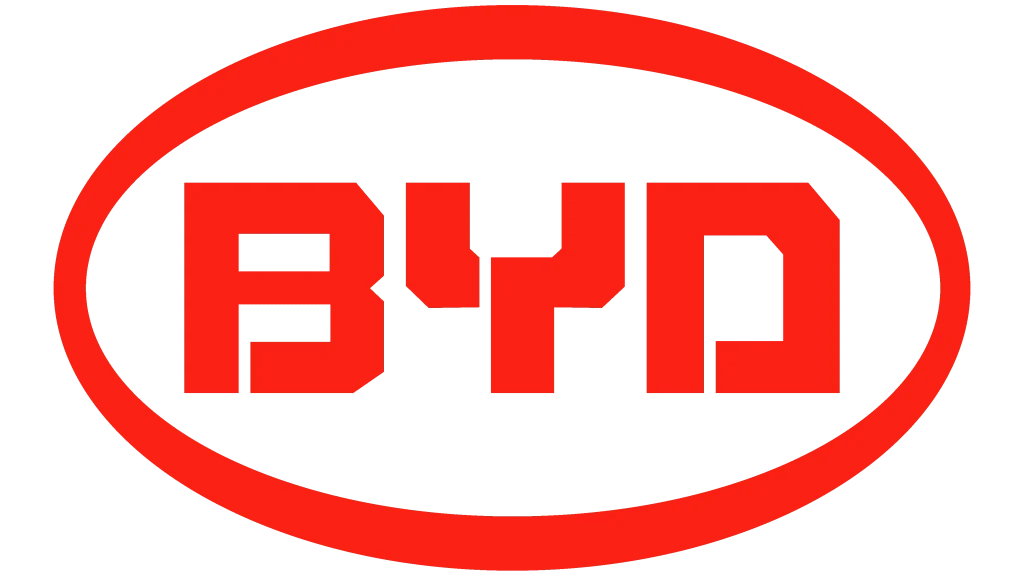
BYD (BYD Company Limited)
BYD solar battery products have carved a name in the Nigerian market as a top-tier solution for energy storage, especially where reliability and advanced protection matter. For homeowners, solar installers, and facility managers facing constant power cuts, BYD offers a solid alternative to fuel-based generators — though at a premium price.
1. What Makes BYD a Strong Option in Nigeria?
BYD brings more than just reputation. With over 200 global patents and presence in 100+ countries, this company integrates battery technology from cell production to full system deployment. In Nigeria, they supply lithium-ion batteries with high energy density and intelligent battery management systems that can prevent overheating, overcharging, and deep discharge.
Their most commonly available models start from ₦1.8 million and can go as high as ₦13 million, depending on capacity. A standard 10kWh battery costs around ₦9.1 million, equating to ₦910,000 per kWh. This places BYD firmly in the high-end category when compared to other solar battery companies.
2. Key Specifications
- Battery type: Lithium-ion (LiFePO4)
- Energy density: High
- Nominal voltage: 48V (common in Nigerian residential solar setups)
- Safety features: Fire prevention, BMS-controlled protection, short-circuit resistance
- Lifecycle: Typically 6,000+ cycles
Pros & Cons
| Pros | Cons |
|---|---|
| High-quality build and safety tech | Expensive upfront cost |
| Trusted global brand | Limited availability in local stores |
| Supports scalable storage setups | May require certified installers |
MANLY Battery (Shenzhen MANLY Battery Co., Ltd)
For Nigerians looking for long-lasting, high-performance solar battery storage, MANLY Battery is more than a brand. It’s a power solution tailored to our reality. Built by one of the top Chinese battery manufacturers, MANLY delivers energy storage systems that perform reliably through blackouts, extreme heat, and heavy daily use.
Whether you’re running a home in Lagos, a school in Enugu, or a cold room in Kaduna, MANLY’s solar batteries are engineered to handle it all — without breaking your budget.
1. Built for Nigeria’s Tough Conditions
Most solar battery companies design for mild weather. Not MANLY. Their LiFePO₄ batteries operate from –20°C to 75°C, and each unit is torture-tested up to 100°C in high-heat chambers. In the Nigerian sun, where many batteries lose capacity or even swell, MANLY batteries hold firm.
Their casing resists fire, shock, and vibration. Short-circuit protection, overcharge cutoffs, and BMS-controlled temperature management come standard — because safety isn’t optional when your battery powers your fridge, pump, or clinic.
2. Transparent Pricing, No Surprises
If you’re shopping by solar battery price in Nigeria, MANLY gives you solid performance at a smart price point:
| Capacity | Price (₦) |
|---|---|
| 5kWh | 1,900,000 |
| 10kWh | 3,600,000 |
| 15kWh | 4,500,000 |
3. Factory-Grade Quality from the Inside Out
At the heart of MANLY’s power lies automation and precision. Inside their 65,000-square-meter plants in Shenzhen, Dongguan, and Huizhou, robotic laser welding machines ensure every battery joint is accurate and tight — no overheating, no drop-offs.
Each battery runs through advanced testing cabinets handling up to 200V and 500A, simulating real-world loads. That means you get a battery that’s already proven its durability before it lands in Nigeria.
4. Features Nigerians Actually Need
You don’t just want power — you want power that performs. Here’s what makes MANLY stand out:
- Bluetooth & LED Display: Check charge levels on your phone or screen. No guesswork.
- 10-Year Warranty: Real protection, not empty promises.
- Custom Configurations: Choose your voltage, shape, casing, terminals — MANLY builds it your way.
- Shock-Proof Shell: Safe for transport in rural roads or commercial trucks.
- Plug-and-Play: Install easily with solar inverters common in Nigeria, like Growatt, Victron, and MPP Solar.
5. Real Use Cases in Nigeria
- Residential solar backup in Lagos suburbs
- Cold chain storage for hospitals and clinics in Jos
- Remote school power systems in Ebonyi State
- Solar-powered street lighting for estate developers
- Backup power for poultry and fish farms
Compared to Other Brands
| Feature | MANLY Battery | Typical Market Battery |
|---|---|---|
| Temp Range | –20°C to 75°C | 0°C to 55°C |
| Efficiency | 95%+ | 70–80% |
| Certification | CE, UN38.3, UL, IEC62133 | Not always certified |
| Daily Production | 3,000+ batteries | Often limited |
| Design Flexibility | Fully customizable | Mostly fixed specs |
| Safety Systems | 5-level protection | Basic fuses or none |
Final Word: Why MANLY?
If you’re tired of replacing batteries every year or worrying about what happens when NEPA drops again, go for a battery that’s built with your daily struggle in mind. MANLY doesn’t just tick boxes — it over-delivers on performance, safety, and price.
Whether you’re a homeowner, contractor, or system integrator, MANLY offers one of the most reliable, efficient, and durable energy storage solutions on the Nigerian market today.
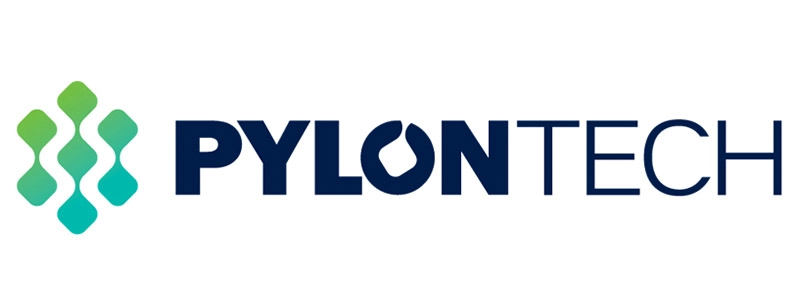
Pylontech (Pylon Technologies Co., Ltd.)
Pylontech batteries are becoming a household name across Nigeria’s solar sector — and for good reason. This brand focuses exclusively on energy storage systems and delivers some of the most balanced products in terms of price, safety, and performance.
1. Why Pylontech is Popular in Nigerian Solar Installations
Founded in 2009, Pylontech offers lithium iron phosphate (LiFePO4) batteries that are built for stability and durability. Unlike traditional lead-acid systems that overheat or fail quickly under heavy use, Pylontech batteries stay cool and keep delivering power even under Nigeria’s harsh weather conditions.
Their prices start from ₦1.8 million, with a 10kWh battery costing about ₦4.9 million — that’s ₦490,000 per kWh, which is significantly lower than BYD’s rate. This makes Pylontech an attractive middle-tier solution for homes and small businesses looking for long-term value.
2. Key Specifications
- Battery chemistry: Lithium iron phosphate (LiFePO4)
- Thermal protection: Multi-layer fire resistance + heat suppression
- Voltage: 48V modular units
- Expected life: Over 6,000 charge cycles
- Compatibility: Can be used with most hybrid inverters and solar charge controllers
3. What Stands Out?
Pylontech’s safety design includes passive and active protections. For example, the cells are resistant to thermal runaway (won’t catch fire), and the smart BMS adjusts protection thresholds dynamically based on system health.
Their systems also support 3S-level smart communication, enabling real-time monitoring through platforms integrated with inverters like Growatt, Victron, or Schneider — brands common in the Nigerian market.
Pros & Cons
| Pros | Cons |
|---|---|
| Affordable per kWh | Still not widely stocked nationwide |
| Long lifespan with minimal maintenance | Needs experienced installers |
| High thermal resistance | May require external monitoring tools |
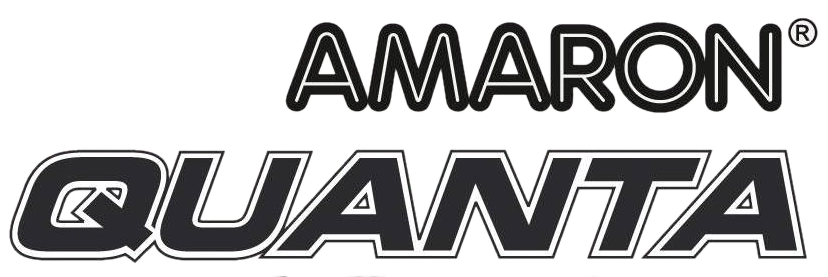
Amaron Quanta (Amara Raja Energy & Mobility Limited)
Power outages remain a serious issue for Nigerian industries, especially in banking, telecom, and IT. Amaron Quanta offers a dependable energy backup option, tailored for organisations that demand consistent uptime. Manufactured by Amara Raja Energy & Mobility (ARE&M), one of India’s largest battery producers, Quanta has built a strong reputation across 40+ countries — including a growing presence in Nigeria.
1. Built for Enterprise-Grade Demands
This lead-acid solar battery is designed for industrial use and large-capacity inverter systems. It comes with valve-regulated technology, sealed enclosures, and zero-maintenance architecture. Quanta’s standout feature is its Radgrid profile, which ensures:
- Uniform current distribution
- Fast recovery from deep discharge
- Stable performance under variable loads
These features make it ideal for telecom base stations, bank data centres, and UPS setups in corporate environments where failure isn’t an option.
2. Local Pricing and Value
If you’re comparing solar battery price in Nigeria, Quanta provides strong ROI at a mid-tier cost:
- 10kWh system: approx. ₦1,461,000
- Price per kWh: ~₦146,100
Though it’s not the cheapest on the market, it delivers proven performance, especially in structured indoor systems where ventilation and inverter compatibility are properly managed.
Best Use Cases in Nigeria
- Enterprise server rooms
- ATMs and switching centres
- Telecommunication towers
- Government facilities with mission-critical operations

Luminous (Luminous Power Technologies Pvt. Ltd)
If you’re running a home in Owerri, a small business in Kano, or a phone-charging kiosk in Benin, Luminous gives you a low-cost battery option that gets the job done. Known for its massive dealer network and customer-friendly pricing, Luminous has made its way into millions of Nigerian homes.
Backed by 35 years of innovation and a footprint across 36 countries, the company offers batteries that work with both grid-tied inverters and solar panels — giving Nigerians flexibility in areas with irregular power supply.
1. Key Technology Features
Luminous batteries are sealed lead-acid (SLA) models. While they don’t offer the longevity of lithium, they are:
- Easy to install and maintain
- Safe for residential environments
- Compatible with most 1.5kVA – 5kVA inverters
Their design reduces risk of leakage and simplifies handling — a big plus for users without technical backgrounds.
2. Pricing Snapshot in Nigeria
Luminous is one of the most affordable brands in the solar battery price in Nigeria bracket:
- 10kWh system: around ₦1,400,000
- Per kWh cost: ~₦140,000
That makes it ideal for price-sensitive buyers looking to shift away from noisy generators or unreliable grid supply.
3. Where Luminous Fits Best
- Homes using solar + inverter setups
- Hair salons, cyber cafés, and small shops
- Churches and community centres
- Mobile phone charging businesses
4. Installation & Maintenance Tips
Keep Luminous batteries in a well-ventilated area to avoid heat build-up. Charge regularly and avoid total discharge. Pair with inverter systems that include automatic low-voltage disconnect (LVD) to avoid damage.
If you’re in a dusty or flood-prone area, mount the battery off the floor and keep it dry. Luminous also offers inverter and solar combo kits — ask your local dealer about integrated solutions.
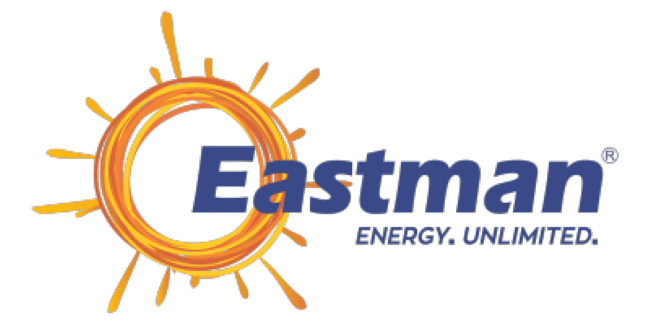
Eastman (Eastman Auto & Power Limited)
Eastman batteries are gaining steady ground across Nigeria’s power backup market, especially among customers looking for strong performance from solar battery companies that don’t break the bank. Manufactured by Eastman Auto & Power Limited (EAPL) — India’s largest producer of solar tubular batteries — Eastman brings a strong blend of innovation, affordability, and nationwide availability to the Nigerian energy space.
1. What Makes Eastman a Practical Choice in Nigeria?
Eastman specializes in deep-cycle lead-acid batteries, particularly tubular plate models, which are more durable than conventional flat plate options. Their batteries handle regular charge-discharge cycles well, making them perfect for solar setups in regions with inconsistent sunlight or grid power.
Their build quality is backed by:
- 8 large-scale factories across India
- Over 5,000 skilled workers
- 25GW annual production capacity
- Products exported to 50+ countries
Each battery undergoes strict quality testing and comes with extended warranty terms — a major plus for Nigerian buyers who want confidence in their investment.
2. Pricing Overview and Market Value
In terms of solar battery price in Nigeria, Eastman hits a reasonable midpoint between performance and affordability:
- 10kWh system costs roughly ₦1,400,000
- Per kWh price: around ₦140,000
Compared to lithium models, Eastman offers lower upfront cost and easier servicing, which suits the needs of homeowners and small businesses with limited capital but high power demands.
3. Ideal Applications in Nigeria
- Urban homes running 3–5kVA inverter systems
- Rural off-grid homes using solar panel + inverter setups
- POS, tailors, salons and small retail businesses
- Community centres, churches, and school classrooms
4. Technical Tips for Long-Term Use
To get the best out of Eastman batteries:
- Avoid full discharge below 11V to preserve lifespan
- Charge daily using solar or grid power
- Keep battery in a shaded, ventilated area
- Ensure battery is paired with an inverter that supports lead-acid charging algorithms
Eastman performs best when integrated with solar panels and used in a system with moderate to high daily cycling — making it a solid choice for Nigerian conditions.
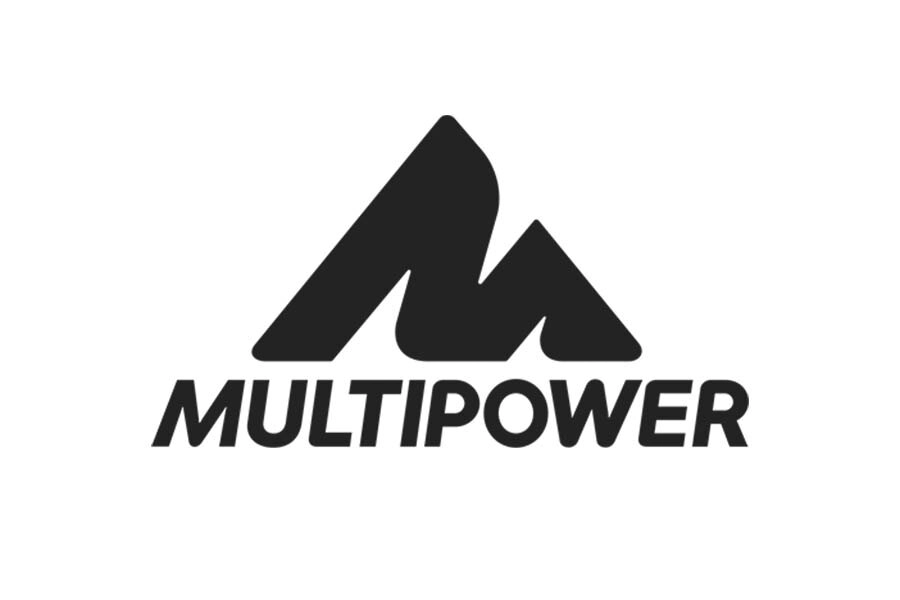
Multipower
1. German-Built Battery Systems Designed for Steady Backup
When you need backup that won’t disappoint during sudden blackouts, Multipower batteries step up to the challenge. As a reputable German brand known globally for industrial-grade lead-acid batteries, Multipower brings strong design thinking and real-world durability to Nigeria’s growing backup energy market.
2. Technical Strength Backed by Precision Engineering
Multipower isn’t just about product quantity — it’s about quality. Their development team combines advanced CAD design, field experience from military-grade power systems, and precision testing to deliver batteries that can withstand heavy-duty cycles.
For Nigerian customers, these batteries are prized for:
- Consistent voltage stability
- Longer shelf and service life
- Compact form factor for tight indoor spaces
- Low maintenance sealed construction
Multipower batteries are compatible with most inverter systems common in Nigeria (Bluegate, Mercury, Prag) and can power light-to-moderate loads reliably.
3. Cost Advantage for Budget-Focused Users
Multipower is also one of the most affordable international brands in today’s market, especially when analyzed per energy unit:
- 10kWh system costs approx. ₦1,160,000
- Price per kWh: about ₦116,000
That makes Multipower highly competitive in the solar battery price in Nigeria category, especially for users who want performance at a lower upfront cost.
4. Best-Fit Use Scenarios
Multipower batteries shine in:
- Single-room apartments or hostels
- Barbershops, game centres, and phone charging kiosks
- Medical diagnostic labs needing backup for low-wattage equipment
- Security devices like CCTV and electric fencing systems
Usage Recommendations
For long-term value:
- Don’t overload the battery with heavy appliances like fridges or irons
- Use with a smart inverter that supports battery voltage cut-off
- Recharge as soon as voltage drops to 11.5–12V
- Install in a dust-free, ventilated environment
These steps help maintain its lifespan, especially in hotter cities like Kano or Port Harcourt where battery heat management is essential.
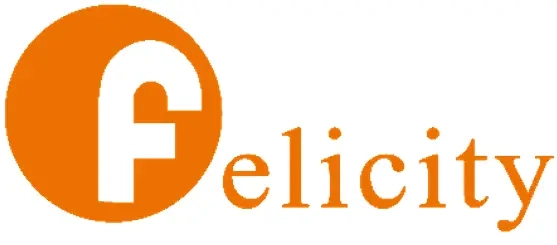
Felicity (Guangzhou Felicity Solar Technology Co., Ltd.)
1. Affordable Lithium Battery Solutions Made for Nigerian Homes and Small Offices
If you live in a part of Nigeria where NEPA takes light anytime, or you’re running a shop that needs clean, silent power, then Felicitysolar might be just what you need. Known among the solar battery companies operating in Nigeria, Felicity stands out with smart, mid-range lithium battery systems that offer value and long life for the price.
2. Product Line and Technical Features
Felicity offers several battery models designed to support home and small business solar systems, including:
- 5kWh (24V and 48V)
- 8.7kWh (48V)
- 17kWh (48V)
All batteries come equipped with intelligent Battery Management Systems (BMS) that communicate with hybrid inverters via RS485 or CAN, ensuring smoother performance and safer charging cycles.
Discharge Depth (DOD): Up to 80%
Lifespan: Over 4000 cycles under proper use
Voltage Support: Works with 24V and 48V inverters
3. Pricing and Market Appeal
When you consider solar battery price in Nigeria, Felicity batteries provide a good balance between cost and performance:
- 5kWh – ₦1,300,000
- 8.7kWh – ₦2,600,000
- 17kWh – ₦5,300,000
These prices make them a popular option for homeowners and solar installers working on a mid-tier budget.
4. Ideal Use Cases in Nigeria
- Off-grid solar homes in northern and rural areas
- Shops, salons, and POS stations using solar + inverter
- Apartments with 24/7 backup need
- Small clinics and mobile health centers using LED lighting and diagnostic tools
Installation & Usage Tips
- Keep batteries indoors, preferably in a cool, dust-free space
- Avoid draining below 20% to extend cycle life
- Pair with inverters like Must, Growatt, or MPP Solar for optimal results
- Recharge every 24–48 hours, even if backup isn’t used, to maintain battery health
If you want reliable backup without jumping to high-end brands, Felicity gives you solid performance and a flexible system that grows with your power needs.
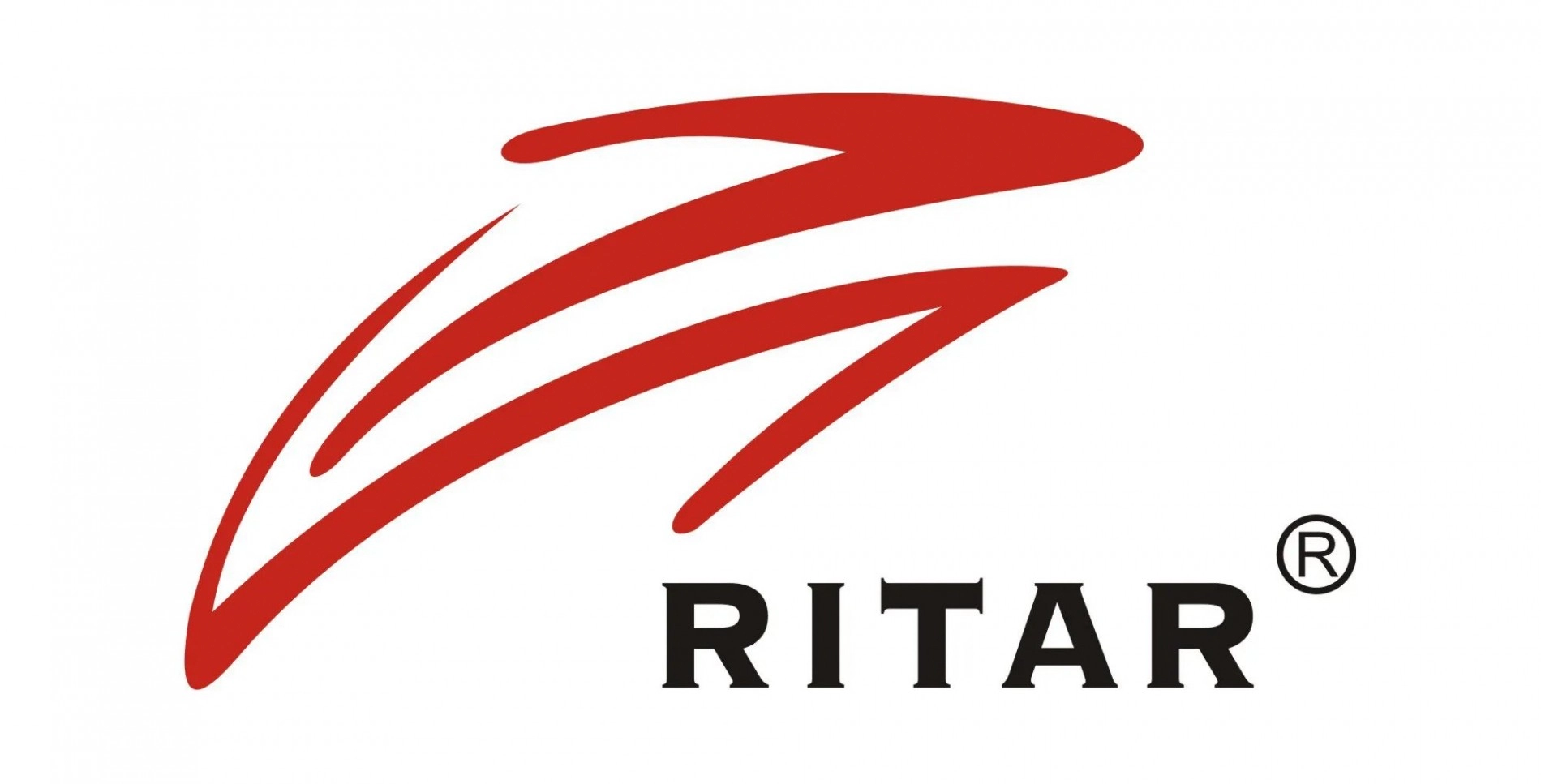
RITAR (Ritar International Group Limited)
1. High-Efficiency Lithium Storage Backed by Global Engineering
RITAR may not be the loudest name in the Nigerian solar scene, but this brand has a serious global footprint. As one of the more established Chinese battery manufacturers, RITAR delivers a complete portfolio of energy storage solutions built for grid support, telecom, industrial use, and increasingly—residential solar battery systems in Nigeria.
2. Performance and Design
One of the best things about RITAR is its scale and R&D investment. With 8 production bases and 6 million kVAh in yearly capacity, this company offers high-volume production without cutting quality.
For residential solar use in Nigeria, their 6kWh lithium battery is especially appealing:
- Chemistry: LiFePO4
- Rated Capacity: 6kWh
- Price: ₦1,137,500
- Cycle Life: 5000+ cycles
- Inverter Compatibility: Victron, Growatt, and other RS485/CAN models
3. Ideal Applications
- 3-bedroom homes running 3–5kVA inverter systems
- Commercial equipment backup (routers, fans, lights, security)
- Base stations for internet service providers
- Modular setups with 2 or more units stacked for 12kWh or more
Whether you’re running a digital printing business or need stable nighttime backup, RITAR batteries deliver quiet power that performs under pressure.
4. Technical Advice for Nigerian Users
- Install batteries in elevated, ventilated cabinets to reduce overheating
- Use MPPT solar charge controllers to protect the lithium cells
- Set battery low-voltage disconnect at 46V (for 48V systems)
- Charge regularly, especially in rainy season, to avoid undercharging
For those who want reliability without needing overly expensive systems, RITAR offers a trustworthy name with a strong global reputation.

Gennex SVC
Gennex Technologies is one of the few solar battery companies in Nigeria that designs lithium battery systems locally, for Nigerians. Their SVC series combines elegant engineering with robust features, built to power both residential homes and commercial facilities across the country.
1. Product Highlights: Built for Nigerian Power Conditions
The Gennex SVC 48V LiFePO₄ battery is known for its performance stability and system intelligence. It’s designed with:
- Smart BMS (Battery Management System)
- Multiple communication interfaces: RS485, CAN, WiFi, Bluetooth, SNMP
- LCD front panel display for live system monitoring
- 360° safety features: over-discharge, overheat, overload, and short circuit protection
- Parallel support: up to 16 batteries for larger systems
- Long cycle life: 6000+ cycles at 80% DOD
This battery easily integrates with most solar inverter brands used in Nigeria, including Victron, Growatt, and Must.
2. Pricing and Power Range
In terms of solar battery price in Nigeria, Gennex SVC is a premium option, but one that offers long-term value. Pricing ranges from:
- ₦1,500,000 for smaller units
- Up to ₦4,000,000 for higher-capacity models
- 15kWh model: approx. ₦3,516,000
With a 10-year design life, the cost per cycle remains competitive compared to cheaper batteries that fail within 2–3 years.
3. Ideal Applications
- Mid- to large-size homes with multiple air conditioners
- Businesses needing 24-hour backup for computers, POS, and CCTV
- Health centres that depend on clean uninterrupted power
- Off-grid rural estates or farms with solar-heavy infrastructure
Installation & Maintenance Tips
- Install on a level, ventilated surface indoors
- Avoid full discharges below 20% state-of-charge
- Keep firmware updated for BMS-inverter communication
- Ensure wiring gauge matches inverter output to avoid overload
Gennex SVC batteries are a smart, Nigerian-made investment for users who prioritize durability, safety, and smart monitoring features.
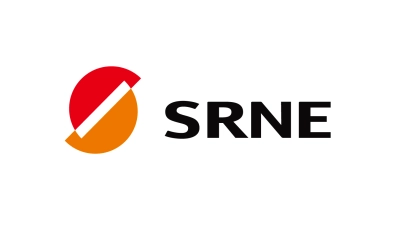
SRNE
SRNE Solar Co. Ltd, based in Shenzhen, is quickly establishing itself as a trustworthy name among chinese battery manufacturers, especially in the Nigerian residential solar market. While best known for its solar controllers and inverters, SRNE’s lithium batteries are now being adopted in homes and small commercial setups for their reliability and reasonable cost.
1. Battery Features That Fit Nigerian Needs
The SRNE lithium battery offers strong specs that meet Nigeria’s hybrid solar expectations:
- Voltage: 51.2V (ideal for 48V inverter systems)
- DOD: 80% standard for deep cycle lithium units
- Cycle Life: Over 6000 charge/discharge cycles
- Lifespan: Up to 20 years under optimal use
- Expandable: Parallel support for up to 9 units
- Compatibility: Works well with inverter brands like Growatt, Felicity, and MPP Solar
These features make SRNE a reliable choice for users upgrading from lead-acid to lithium.
2. Price Range and Performance Position
In terms of solar battery price in Nigeria, SRNE offers solid mid-range pricing:
- Prices range from ₦1,350,000 to ₦2,500,000
- Suitable for homes running 3kVA to 10kVA inverter systems
Compared to Felicity or Ritar, SRNE offers a more refined product with fewer reported voltage irregularities and longer runtime under load.
Recommended Use Cases
- 3–5 bedroom homes with full inverter backup
- Retail stores and POS-based businesses needing 8–12 hours of steady power
- Schools and churches with daytime solar generation
- Private health posts running fridges or diagnostic tools
Practical Setup Advice
- Mount upright, not on the floor, and in a dry, cool space
- Avoid mismatched inverter voltages (e.g. 24V inverter on 48V battery)
- Charge regularly — do not leave discharged for extended periods
- Use surge protectors on input/output terminals to prevent inverter shock damage
For solar professionals and homeowners seeking durable lithium solutions without the high cost of European brands, SRNE is proving itself project after project.
Conclusion
When it comes to choosing the right solar battery for your home, office, farm, or business in Nigeria, there’s no one-size-fits-all. Some brands like BYD and MANLY Battery offer premium lithium solutions with top-tier protection and longer warranties. Others like Luminous, Multipower, or Eastman deliver more affordable backup options that still hold their own in daily use.
Ultimately, the best battery for you depends on your location, your inverter setup, how much power you use daily, and of course, your budget. That’s why it’s important to balance performance with long-term value, not just upfront cost. Whether you’re investing in high-efficiency lithium or tried-and-tested lead-acid, make sure your choice fits both your energy needs and the realities of solar battery price in Nigeria.
From solar entrepreneurs to everyday households, this list of Nigeria’s best battery options helps you skip the guesswork and make a smarter, longer-lasting energy decision — because in Nigeria, power is not a maybe, it’s a must.

